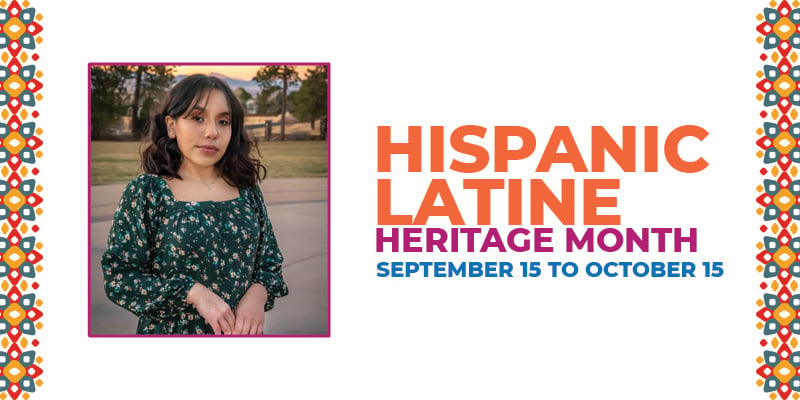“When I enter a patient's room and the patient is Spanish-speaking, and they see that they're being cared for by a Hispanic student, I feel like there's often this sense of relief. It's a connection where trust is felt and it allows patients to share concerns, ask questions comfortably knowing that they're being understood without judgment.”
As a member of the Hispanic community, BS in Nursing student Kaylena Ramirez is on a mission to make healthcare more accessible – and help patients feel more at ease when getting care.
She knows what it’s like to feel confused or disconnected when talking to healthcare professionals. It happened when her dad suffered a spinal cord injury several years ago. Her family felt alone when the injury brought several challenges – including a lack of education about the situation.
“Patients should know what exactly happened or what exactly was affected. It’s their health, and that’s what’s important,” she says. “When I started to learn more about the anatomy of the spinal cord, I asked my father, what exactly happened? Was it the little spaces between the vertebrae, or was it the spinal cord? And sometimes those questions are unanswered for patients and their families.”
Ramirez says when her dad was hurt, there were a lot of confusing and complex medical terms, which made it hard to understand what happened to her dad. She says nurses should speak to patients in words they understand and are culturally aware of their surroundings.
“I feel it's everyone's goal in healthcare to deliver that exceptional care, but I think it's also very important to understand that patients have different needs,” she says. “Nurses should have the ability to alter care to meet a diverse set of needs and we should incorporate that into our practice because it’s very much needed.”
The experience with her father inspired Ramirez to become a nurse and enroll in the Traditional (TRAD) program at the University of Colorado College of Nursing at Anschutz Medical Campus.
“It’s crucial to continue my education at an institution that values diversity and promotes opportunities for students to interact with and care for individuals from various backgrounds, particularly during clinical experiences,” she says.
“I think having more students who are Hispanic or Latinos in healthcare enables us to better educate our communities about health, and promote healthier lifestyles, all while maintaining that cultural integrity that I feel sometimes can be lost.”
Representation Matters
Ramirez says CU Nursing has helped expose her – and other students – to students of different backgrounds. One way is through being the secretary of Future Voices, a student-run organization that celebrates diversity, equity, and inclusivity within the college.
“I aim to be the best healthcare provider I can be – just like every other student. I joined Future Voices because I wanted to learn, but also share with my classmates that these diverse components matter to provide that high-quality patient-centered care,” she says. “Patients are counting on our ability to use our voice to advocate for them to support them and to represent them during these vulnerable moments that we often see in clinical settings.”
Like all nurses, Ramirez gives all patients (no matter their background) the same level of care and respect. She grew up in Aurora, Colorado, and wants to stay there after graduation.
“My experience living in Aurora has given me insight into the daily struggles faced by members of this community and the social determinants that affect their access to healthcare and medical outcomes, and understanding the challenges our members face beyond the clinic walls is crucial for helping them achieve optimal health quality,” she says.
Ramirez also wants to help other first-generation students like her by guiding high school students through the college application process. She had to go through it all on her own because her family was unfamiliar with the process.
“I think being that person for them and sharing my experiences is important so they have an understanding of what they will experience applying to college,” she says. “As more Hispanic students and first-generation students continue an education beyond high school, we're creating an environment for these younger generations to believe that it's possible to go to school beyond high school and pursue a career.”



